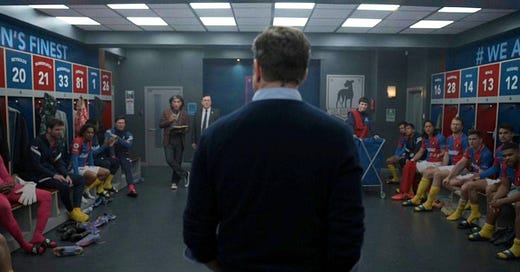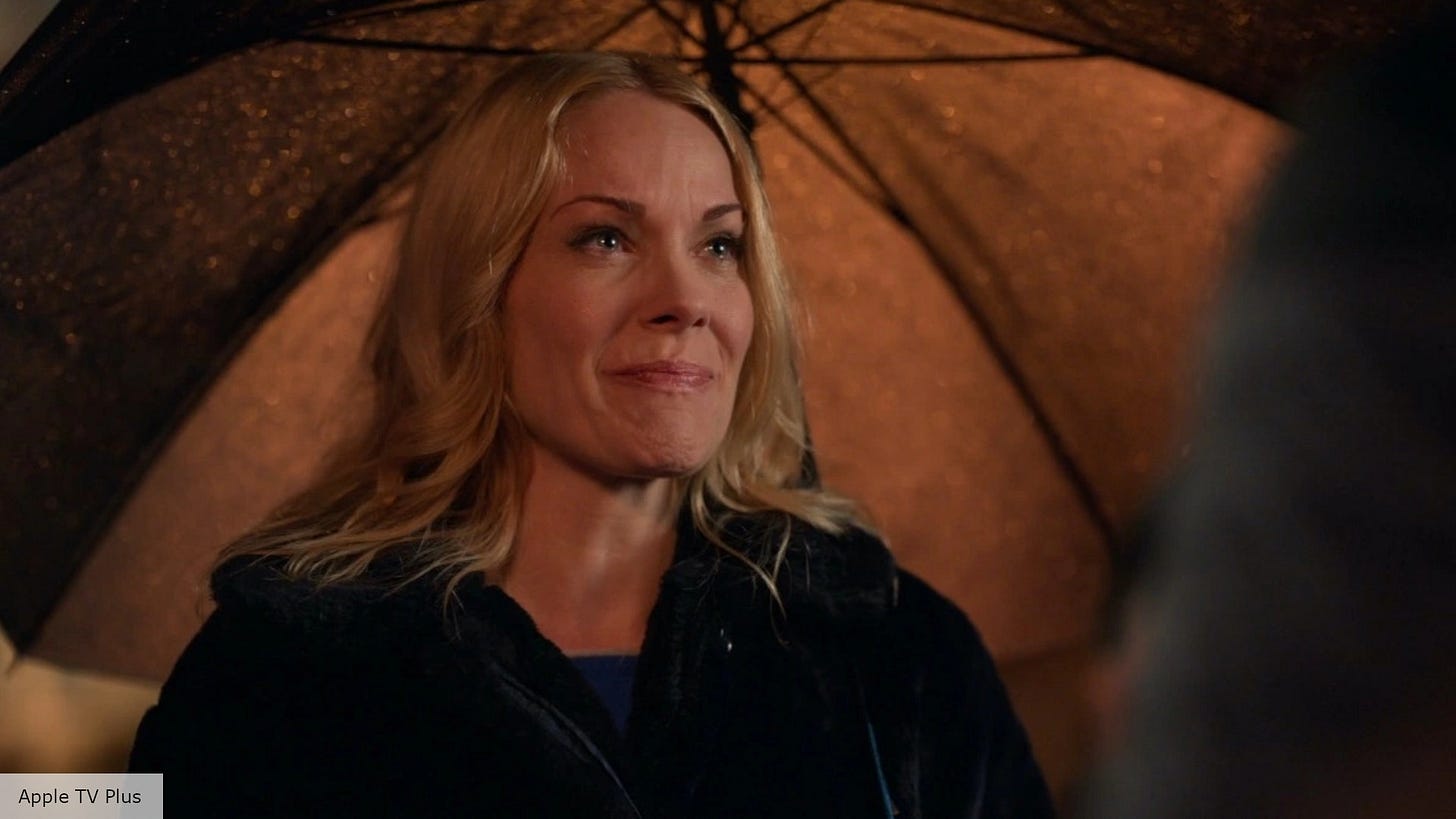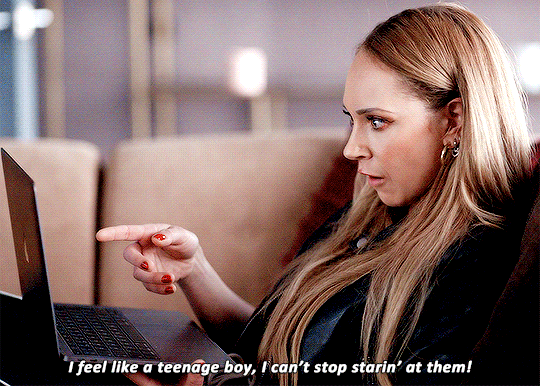The Ted Lasso Relationship Guide: The signs, they are a-changin'
Walking through both joy and pain with others increases empathy and connectedness
In a season of Ted Lasso that is switching things up constantly, we saw pretty huge turning points for a few characters this week. Some are more positive (Nate and Keeley) and some feel more negative (Rebecca and Keeley again - I’ll explain the latter’s inclusion later), but this season is really putting Ted through his paces, and I feel like the speech at the end of the episode deserves some attention.
For much of the episode, Ted is trying to figure out how to help his son, Henry. At first, he’s trying to figure out how to help him deal with what Ted thinks is a bullying problem, and later, trying to figure out how to help him when he discovers that Henry was the one doing the bullying. It weighs on his mind enough to nearly send him into a panic attack, though we see him using tools that he no doubt learned from Dr. Sharon to help avoid a full episode.
At the end, the team has learned that Zava is retiring from the sport altogether. Ted begins to deliver one of his more upbeat pep talks, reminding the team that he wants to work with the people who are there and are committed to Richmond. He says, “All we need to win are the fellas in the room right now. And all you fellas need to do is believe it.” At which point, the ripped sign falls from above the door.
The team declares that they are doomed. Bumbercatch declares that it is a sign. At which point, Ted takes down the sign and tears it apart even more, telling them that it is just a sign. That belief doesn’t come from a sign, rather it comes from inside. But things like envy, fear, and shame can get in the way. But rather than messing around with that, he wants to cling to the belief that he matters, regardless of achievement. The belief that everyone deserves love, even if they have made mistakes in relationships. The belief that things can get better.
“To believe in yourself. To believe in one another. Man, that’s fundamental to being alive.”
Ted seems more aimless this season than I think we’ve seen him in the previous two. He doesn’t seem to have a firm grasp of what he’s supposed to be doing. Not just with regard to the fundamentals of the game, but in London, with his family, with much of anything. Ted has been someone who has always seemed confident, even if he didn’t fully understand what he was doing, but this season, he seems to be moving from an almost blustery kind of confidence to something deeper.
In the last episode, he confesses to Michelle that he felt blindsided by her new romantic interest. And he tells her that he’s not sure what the right course of action was when it came to letting her know. Ted has always been confident about his decisions and seems to largely ignore his emotions. Now he is finding confidence in his emotions as well.
In her book Braving the Wilderness, Brene Brown talks about the isolation that she sees happening currently in America. She writes, “For the moment, most of us are either making the choice to protect ourselves from conflict, discomfort, and vulnerability by staying quiet, or picking sides and in the process slowly and paradoxically adopting the behavior of the people we’re fighting. Either way, the choices we’re making to protect our beliefs and ourselves are leaving us disconnected, afraid, and lonely.”
I think this is what Ted is seeing both in the team and in himself. Yes, the team is close, but they seem to be continuing to play out of anger and fear, rather than joy. There is no more “football is life,” but rather the constant threat of relegation, and specifically of losing to Nate. Wanting to win is necessary, but it seems to be more that they want the other teams to lose, and that is hurting their ability to truly believe in themselves.
Ted has been so afraid of addressing the hurt of losing his father to suicide, that he never seemed able to deal with any potential negative emotions from anyone. Opening up and telling Michelle that he was hurt by her moving on without letting him know could have resulted in anger from her, but by honoring his own emotions, he ultimately honored both of them. She didn’t need to be protected from feeling bad, instead, she got honesty from him in a way she may not have before. I think the smile at the end of last week’s episode was less about the two of them getting back together and more about feeling good that they can have a more honest relationship going forward.
Brown writes, “It’s counterintuitive, but our belief in inextricable human connection is one of our most renewable sources of courage in the wilderness. I can stand up for what I believe is right when I know that regardless of the pushback and criticism, I’m connected to myself and others in a way that can’t be severed.” She suggests that in order to have a deeper sense of the connectedness of everyone, we must, “Show up for collective moments of joy and pain so we can actually bear witness to inextricable human connection.” Simply making it a point to participate in the joy and pain of others, even strangers, allows us to believe in ourselves.
In season 1, Ted tells the team that the happiest creature alive is a goldfish because it has a ten second memory. There is definitely something to be said for letting go of things that weigh us down that we’re unable to fix. But I think sometimes that gets tangled up with not actually being willing to face the painful moments at all. To be able to heal from hurt and to be able to see the humanity of others who hurt, we have to be willing to look at it head on.
What I see in this season of Ted Lasso, and especially in this episode, is a growing willingness to look at pain more honestly. This is why at the beginning I said that Keeley’s story may not be entirely positive. Not because of who she’s with, but rather because it is a way to avoid the hurt she experienced.
The ability to see the humanity of others requires seeing them in all contexts. Seeing how they are when everything is going well is great and life-affirming, but walking with people through their difficulties grows greater connection.
One of my dearest friend groups is largely online, but because of them, I can attest to the need to “show up for collective moments of joy and pain.” We have been there to celebrate NYT Bestsellers, television interviews, political campaigns, new jobs, new marriages, new babies, but we have also been there to share the pain of divorces, failed book launches, miscarriage & stillbirth, and even the death of one in our group. It has knit us together in a unique and powerful way, and I am deeply grateful for each of them.
Ted Lasso this week reminds us that believing in ourselves and other people is fundamental to being alive. And in order to cultivate that belief, we must walk through everything - the good and the bad - with all of the people who cross our paths. When we open ourselves up to that, we open ourselves up to truly living.
Do you have a friend group who you share everything with? How does that help you view the whole world?







